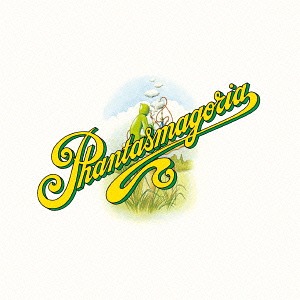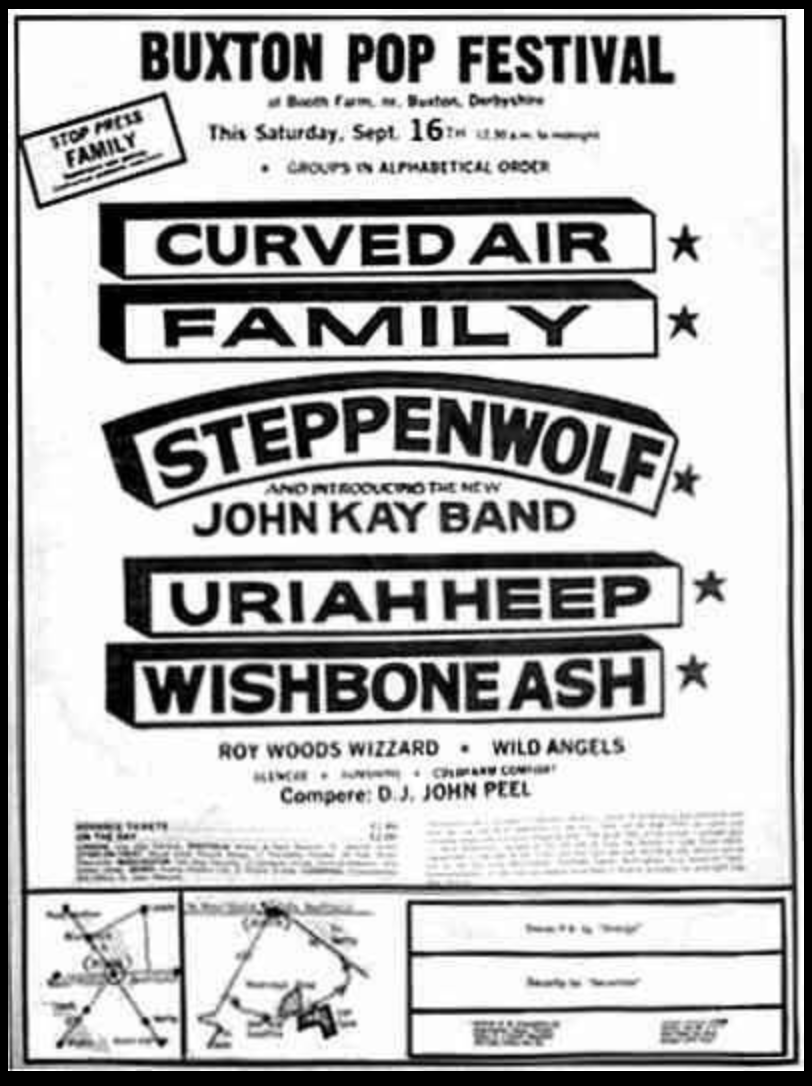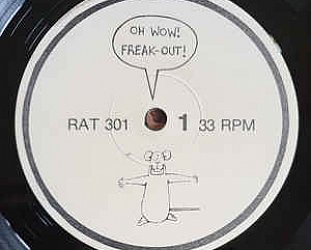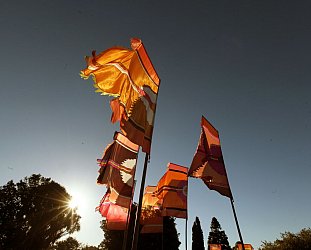Graham Reid | | 3 min read
Over and Above

While there are plenty of songs about sex, there are fewer specifically about masturbation. We can readily think of Springsteen's Dancing in the Dark, Vanessa Daou's Long Tunnel of Wanting You and the Divinyls' I Touch Myself.
But, with a few exceptions, songs about that touchy subject are often coded.
Welcome then to a band who just got straight down to the job in hand: Britain's prog-rockers Curved Air who on their Phantasmagoria album in '72 – pulled from the shelves at random for this on-going column – offered an ode to onanism.
On an album which also had a song about Marie Antoinette.
Prog huh? Who could figure that nonsense out?
The band – named for minimalist Terry Riley's composition A Rainbow in Curved Air – couldn't settle on a line-up and had five different line-ups in the three years from their formation in 1970 to when they broke up for the first time.
They are still going today in some form or other with only singer-writer Sonja Kristina Linwood from the original band.
Over the decades about 20 people have passed through their ranks, some of them on their way to somewhere else: violinist Eddie Jobson to Roxy Music, Jethro Tull and others, drummer Stewart Copeland (the Police), keyboard player and guitarist Francis Monkman (Sky) . . .
 But Phantasmagoria -- their third album -- captured them at an early peak when the band was Linwood, Monkman, violinist/keyboard player Darryl Way, bassist Mike Wedgwood and drummer Florian Pilkington-Miksa.
But Phantasmagoria -- their third album -- captured them at an early peak when the band was Linwood, Monkman, violinist/keyboard player Darryl Way, bassist Mike Wedgwood and drummer Florian Pilkington-Miksa.
There are also more than a dozen guest players on horns, percussion and flute.
Setting aside the lyrics on Marie Antoinette (which tell the story of the French Revolution), the song is an interesting and complex construction with shifting dynamics, rock guitar and what almost sounds like a theremin at one point.
It sounds more like something from a musical than prog-rock.
Folk was a big influence (the slightlydelic pastoralism of Melinda More or Less written by Linwood with terrific violin solo), Cheetah and Ultra-Vivaldi are prog-rock showcase instrumentals for Way's furiously fast violin playing, the latter quite nuts.
What Curved Air excelled in were songs which were unconstrained by style but would shapeshift through jazz progressions (the title track) folk and rock, and even pop.
The second side is a kind of four-part piece linked by lyrics about ghosts and in places Linwood's vocal is processed through synthesiser. It is a daring leap into sonic effects and abstract sound (Whose Shoulder Are You Looking Over Anyway”) which is some considerable distance from anything in prog or rock at the time. Like George Harrison's Electronic Sound but with tunes and rhythm.
The eight minute-plus Over and Above by Monkman is an exceptionally ambitious marriage of prog, jazz, classical passages and concept rock with trumpets and trombones, swirling wah-wah rock guitar and xylophone.
Musically it is closer to Frank Zappa of that period than any other British band.
 The second side is where this album stands apart from whatever anyone else was doing at the time, and you forgive them the lyrics.
The second side is where this album stands apart from whatever anyone else was doing at the time, and you forgive them the lyrics.
Oh and the song about masturbation?
It is on side one and is Not Quite the Same (“girls on glossy paper not quite the same”) written by Way and Linwood.
Linwood's vocals –as they are in many places – are almost buried by the busy music which leaps from majestic prog to a weird pub barrelhouse.
It's kinda fun and Linwood sings about the lonely man who “busys himself, quite amusing himself by abusing himself” then takes the dog for a walk where he sees “a young lady who made him feel soggy . . . then he realised he'd met his match . . . she was losing herself, quite amusing herself by abusing herself”.
Phantasmagoria is a highly unusual album and some of it – the wanking song – hasn't aged well but the second side – Kate Bush-meets-Genesis and a jazz group in a synth testing studio – is where this one comes into its own.
It came off the shelf at random, and we're very glad it did. Side two lives up to the suggestion of the cover art.
.
You can hear this album at Spotify here
.
Albums considered in this on-going page of essays are pulled from the shelves at random, so we can get the good, the bad or the indifferent from major artists to cult acts and sometimes perverse oddities.





post a comment